11 Boomer Parenting Philosophies Even Millennials Agree With
Some parents today aren't following these important principles, but absolutely should.
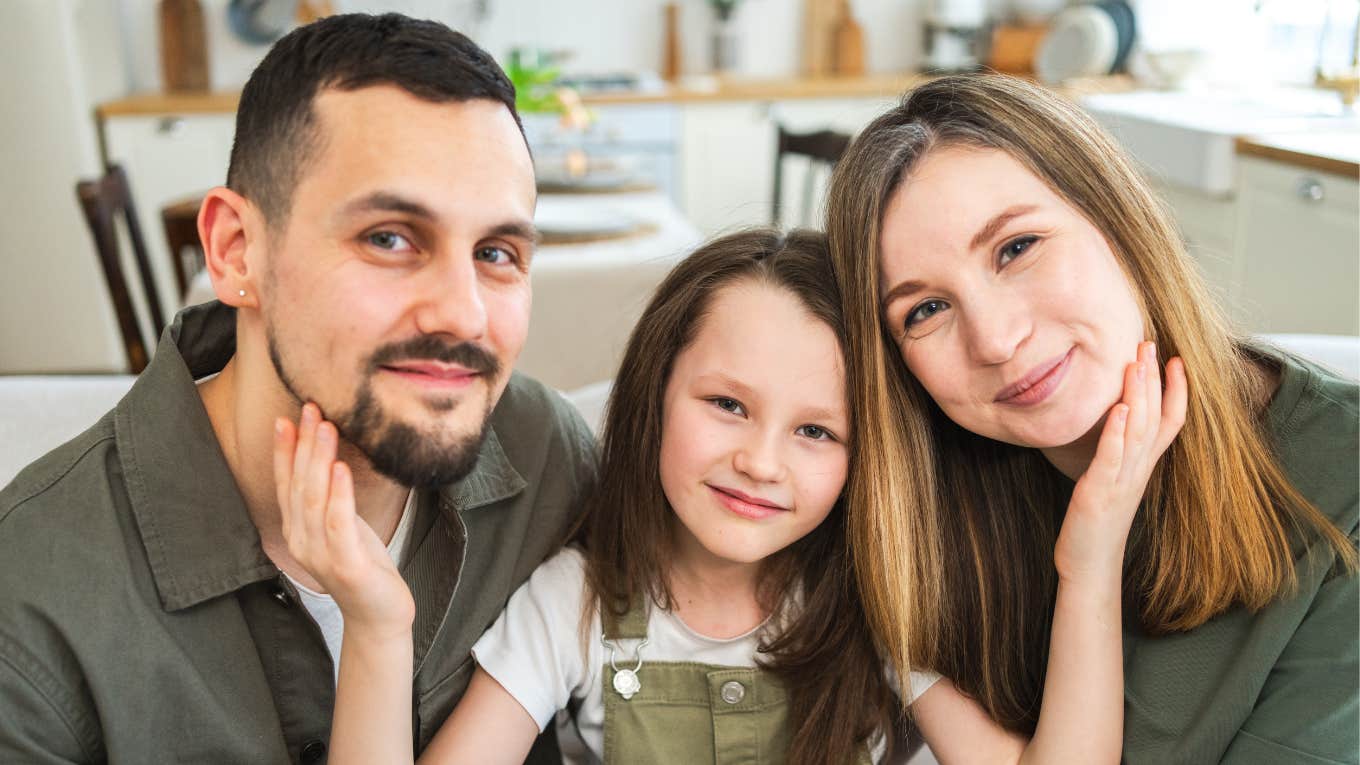 Julia Zavalishina | Shutterstock
Julia Zavalishina | Shutterstock Each generation has their own parenting techniques and morals that they instill in their children. But as time goes on, those values begin to change. What worked for an older generation may not work for a younger one. Still, there are many boomer parenting philosophies even millennials agree with and even incorporate into their own child-rearing experiences.
Teacher and mom Teresa Newman reflected on her own childhood, reminiscing about specific parenting concepts boomers followed that had a significant impact on her life. Many of these principles aren't necessarily followed by parents today, but they remain important to younger generations who are becoming parents in this rapidly changing world.
Here are 11 boomer parenting philosophies even millennials agree with
1. Children don't need iPads or tablets
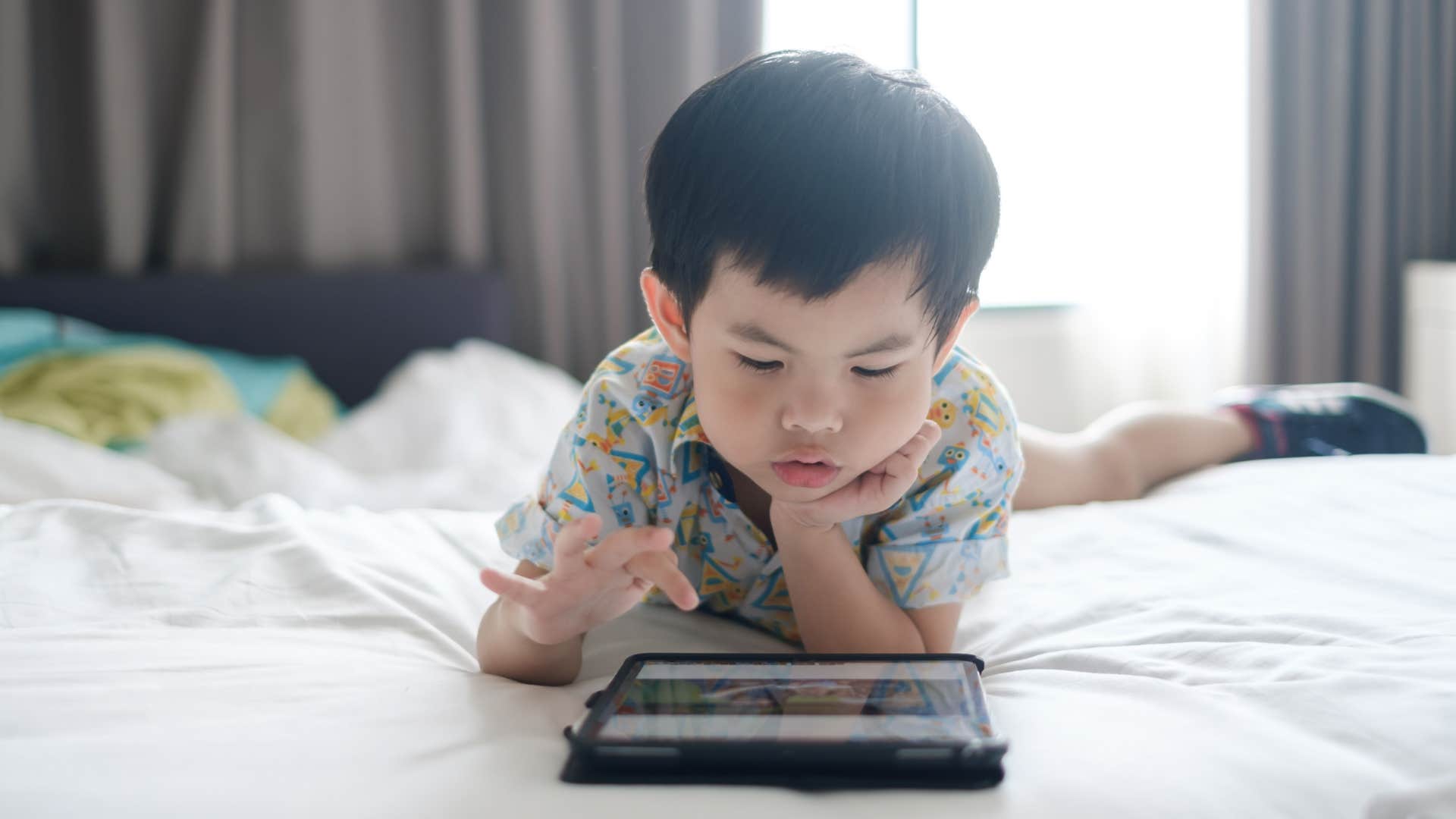 kiatthaworn khorthawornwong | Shutterstock
kiatthaworn khorthawornwong | Shutterstock
Kids today tend to grow up with tablets and iPads and constantly use them, which means they not only become reliant on them, but are eventually robbed of learning without technology. According to Newman, growing up with a tablet can have consequences on kids in the classroom, specifically.
Instead of increasing play time, interacting with more kids, and experiencing nature, many kids today are stuck interacting and learning with technology.
While these devices can be a blessing for older children in school, the introduction of tablets or iPads at a young age can have serious consequences in language delays and can ultimately lead to children speaking less overall, as well as impacting their eyesight.
2. Kids don't need a smartphone until they're at least in high school
 Dmytro Zinkevych | Shutterstock
Dmytro Zinkevych | Shutterstock
While access to the internet is far less regulated for older children, parents can decrease the chances of internet harm early in their kids' lives. Increased dangers like online predators, bullying, and harmful self-worth ideas can all stem from the early adoption of social media and internet access for kids under 18 years old.
As Newman revealed, "I don't want my kids to have that free reign of the internet. I made some really poor choices as a child, and I do not want to repeat that mistake with my kid."
Social psychologist Jonathan Haidt supports this idea, adding that kids shouldn't have social media, as well as cellphones, until they are at least 16 years old, as "social media will lose its appeal if parents collectively keep their children off it."
3. Children need to learn the value of education outside of financial stability
 Dreams Come True | Shutterstock
Dreams Come True | Shutterstock
When it comes to education, Newman's opinion was clear, revealing, "This has nothing to do with how much money you'll be making in the future or how much success you'll have professionally, but you'll value it nonetheless." Regardless of whether her kids pursue higher education, she stressed the importance of being a "lifelong learner."
Education can impact a child's brain development from an early age. Numerous studies, including one published in Child Development, suggested that early education programs lead to better literacy skills, cognitive abilities, and social-emotional development in kids, specifically those who attended high-quality early education programs.
The American Psychological Association added that educated individuals tend to have higher confidence, which leads to greater happiness.
4. Kids should always respect their teachers and treat them well
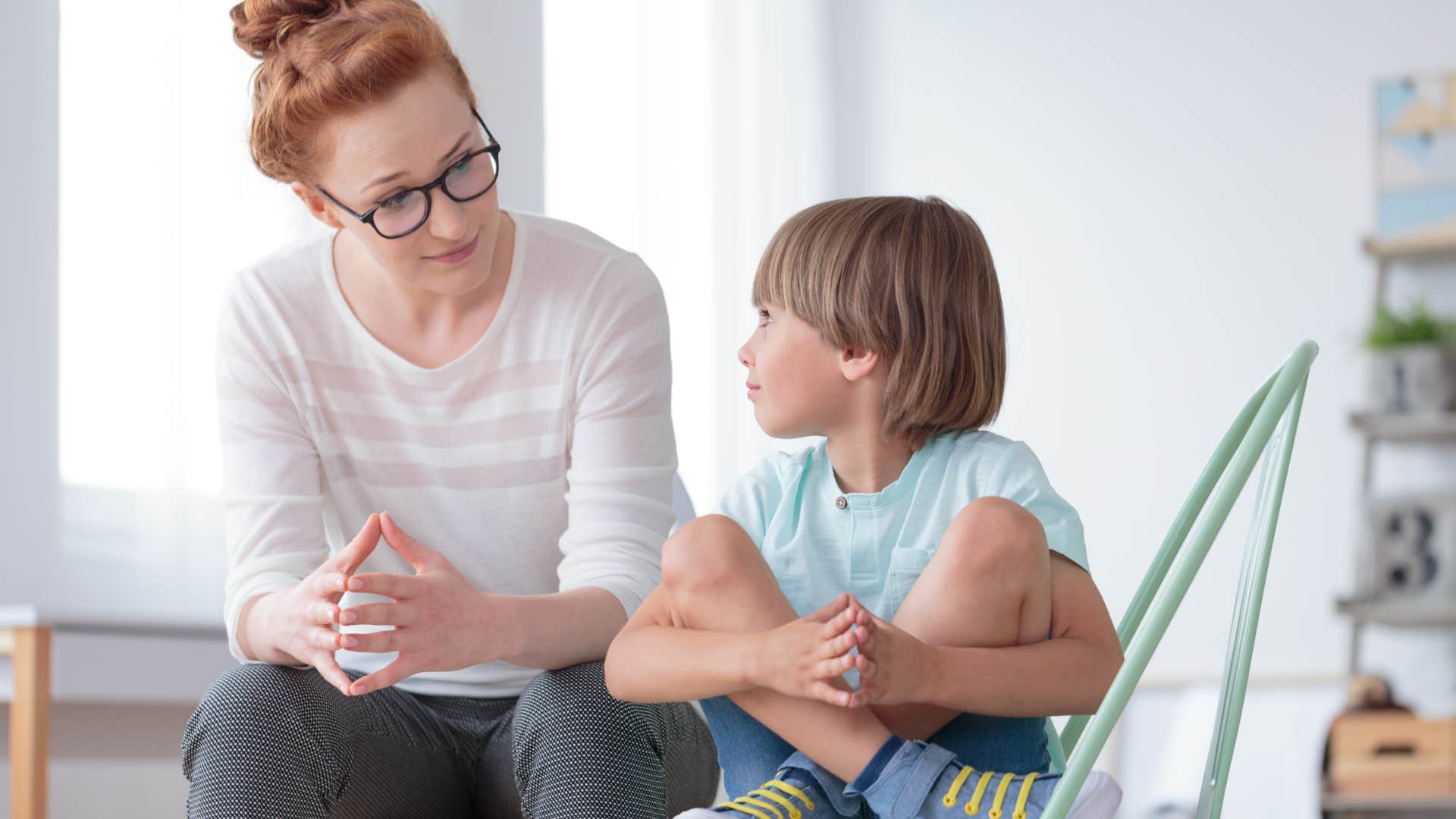 Ground Picture | Shutterstock
Ground Picture | Shutterstock
Children who are taught to be polite tend to be incredibly empathetic, emotionally intelligent, and reliable as adults. Even when kids dislike a teacher for one reason or another, it's important for parents to instill this need for respect.
Newman stressed, "Anyone who has gone through a professional degree program, has put in the time, and is there giving you a quality education deserves some type of attention and deserves to be treated well."
We've all grown up to dislike a teacher at some point in our lives. Acting out on those feelings, however, is inappropriate, especially at school. Unless the teacher is acting inappropriately, or another student is being hurt by their actions, students should always be respectful of a teacher's wishes.
5. Children should be kind to the elderly
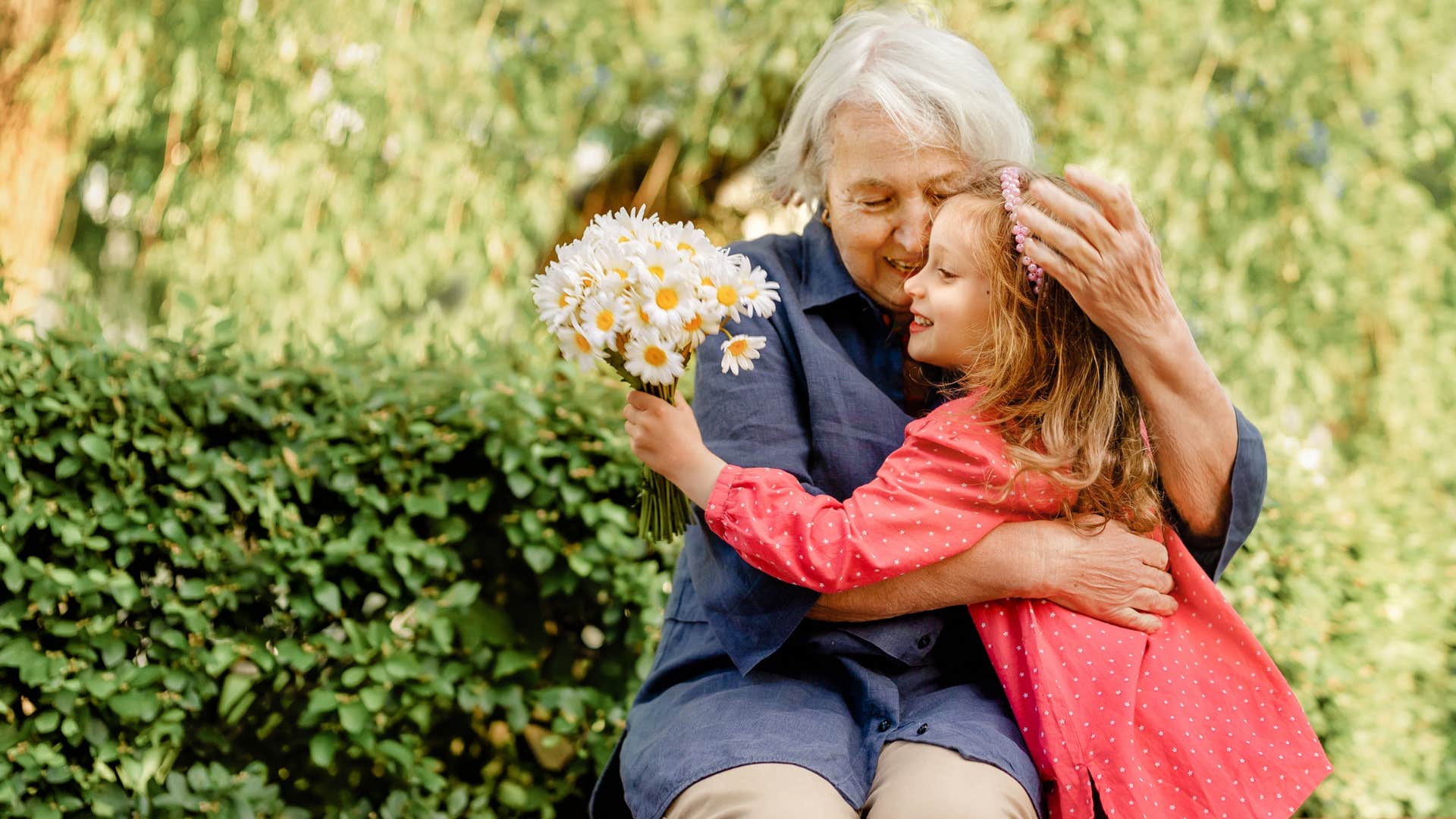 ShineTerra | Shutterstock
ShineTerra | Shutterstock
Along with respecting teachers, one of the boomer parenting philosophies even millennials agree with is being kind to the elderly. Life and career coach Lisa Petsinis advised that parents can raise kind and sensitive kids by modeling that kindness.
You can teach them everyday kind gestures, too. When they observe you giving someone an unexpected gift or merely extending a compliment, talk about the act of kindness afterward to reinforce your actions... Show them that caring for others is a vital part of life," she said.
Newman added that her kids will treat older people with respect, even if that means something as simple as giving up their seats on public transportation or helping with groceries.
"Does this mean they have to be nice to every old person who is mean to them, especially if they're strangers and don't know or owe them anything? No, absolutely not," she clarified.
6. Children should have proper manners
 PeopleImages.com - Yuri A | Shutterstock
PeopleImages.com - Yuri A | Shutterstock
Proper manners are about more than just sitting quietly at the dinner table or respecting personal space; it also includes using "yes, ma'am" and "no, sir" to address people, regardless of age. Many kids today don't have good manners and, as such, act disrespectfully, ignore rules, and are disruptive.
Newman appreciated that boomer parents instilled a sense of respect in their children to address people politely. She added that if they have to drop the "ma'am or sir" to respect someone's gender identity, they'll know when it's appropriate to do so.
7. Kids should use terms of gratitude
 wavebreakmedia | Shutterstock
wavebreakmedia | Shutterstock
One of the very important boomer parenting philosophies even millennials agree with is using terms of gratitude like "please" and "thank you." According to Newman, "These terms of gratitude are just not being taught like they used to. It's a really simple way to raise a kid who is polite."
Maryanne Parker, author and etiquette expert, supports this idea. "Kids learn etiquette and good behavior first at home," she revealed. "However, it has become increasingly difficult for parents to present this knowledge to their kids simply because everyone is so busy and the emphasis has always been on the hard skills."
8. Children must face consequences for poor behavior
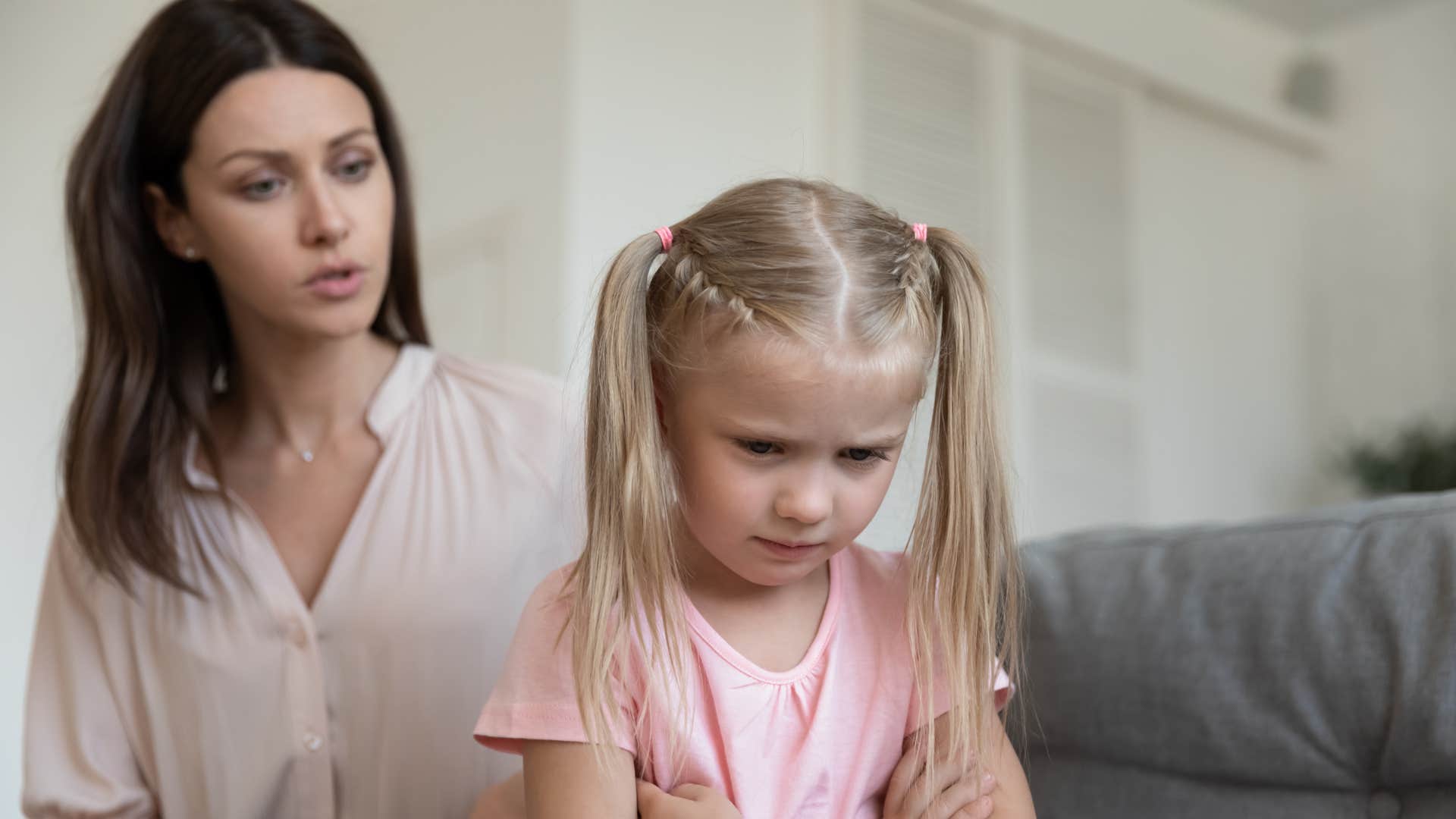 fizkes | Shutterstock
fizkes | Shutterstock
Just as adults must face the consequences of their poor actions, so should children. Of course, that doesn't mean being held to such a high standard as an adult, but it does mean parents enforcing discipline of some kind. Education philosopher Justin Baeder agreed and further explained, "Kids today are protected from retaliation, but free to hurt other people."
Implementing this basic principle of discipline, even if it's just a timeout or taking away a toy, can help to ensure children understand the consequences of poor behavior. In this way, kids learn to take responsibility for their actions and learn self-monitoring.
9. Kids should be respectful of adult conversations and adult spaces
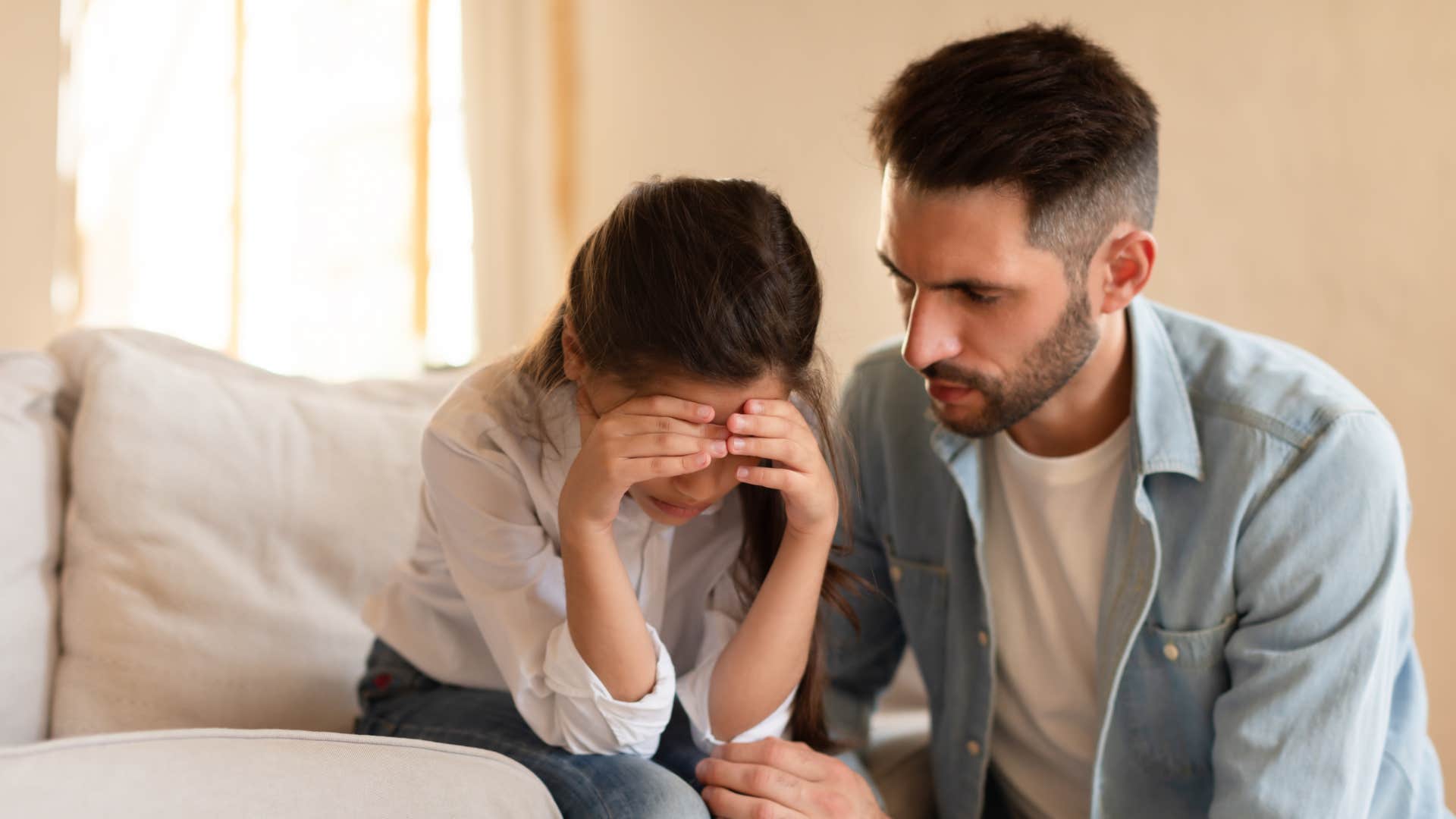 Prostock-studio | Shutterstock
Prostock-studio | Shutterstock
"Regardless of whether or not you think children are equals in society, they need to be taught to respect their place in adult conversations and adult spaces," Newman advised. And similar to these simple manners, children shouldn't be able to overstep boundaries that we wouldn't allow other adults to.
Teaching kids to respect boundaries, especially when adults are trying to have conversations with each other, is essential to raising them right. Saying something like, "Right now, mommy needs 30 minutes to herself, so please do your homework, and I'll come back and check on you in 30 minutes," won't damage a child's self-esteem, while letting them know the rules.
10. Children should clean up their messes and play a part in household chores
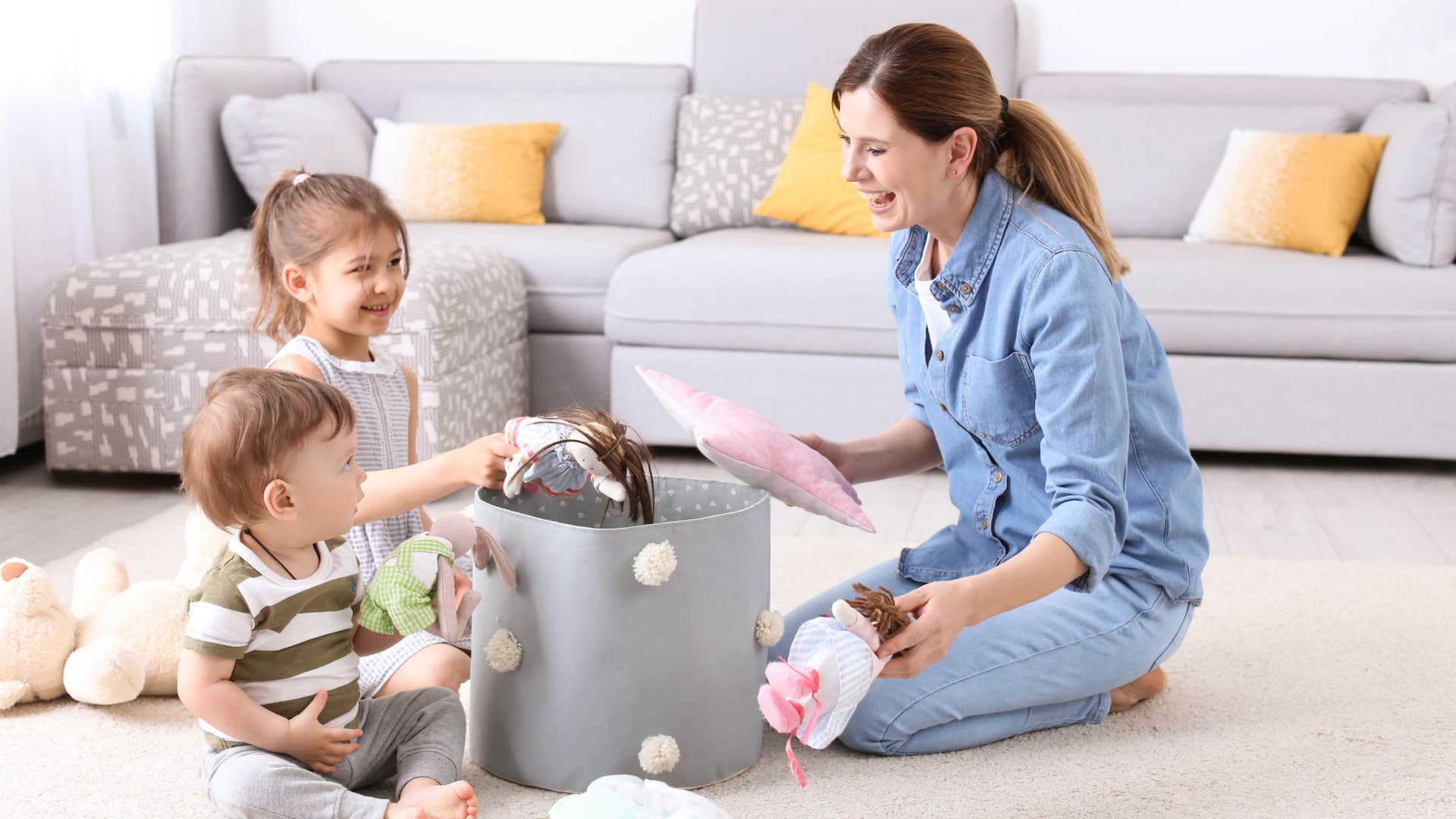 New Africa | Shutterstock
New Africa | Shutterstock
Cleaning up after themselves isn't just essential for children, but for adults, too. Teaching kids responsibility in this way is another of the boomer parenting philosophies even millennials agree with.
Research from the University of Minnesota even determined that giving kids chores builds self-reliance and responsibility, even improving their interpersonal relationships and academic success along the way.
Teaching these kids skills early on is essential, with Newman reiterating that parents should be modeling this behavior. "My children are going to be putting as much work into the house as we are, regardless of if he's paying rent or not. I don't want him to be a burden on someone else," she proclaimed.
11. Parents should enforce bedtimes as long as children are living under their roof
 Kitreel | Shutterstock
Kitreel | Shutterstock
Missing out on life because you pulled an "all-nighter" or stayed up too late the night before is unacceptable. There's no reason to be sacrificing your well-being, even for schoolwork.
In fact, research on the importance of sleep for young people found that a lack of sleep can have more severe consequences for children than for adults, including increased symptoms of depression, anxiety, and difficulty managing emotions.
As a teacher, Newman has had firsthand experience with the consequences of children who don't have parents enforcing these basic principles. And although boomers get a bad rap from younger generations, in the case of these tried and true parenting philosophies, it might be time to start reintroducing them.
Zayda Slabbekoorn is a staff writer with a bachelor's degree in social relations & policy and gender studies who focuses on psychology, relationships, self-help, and human interest stories.

